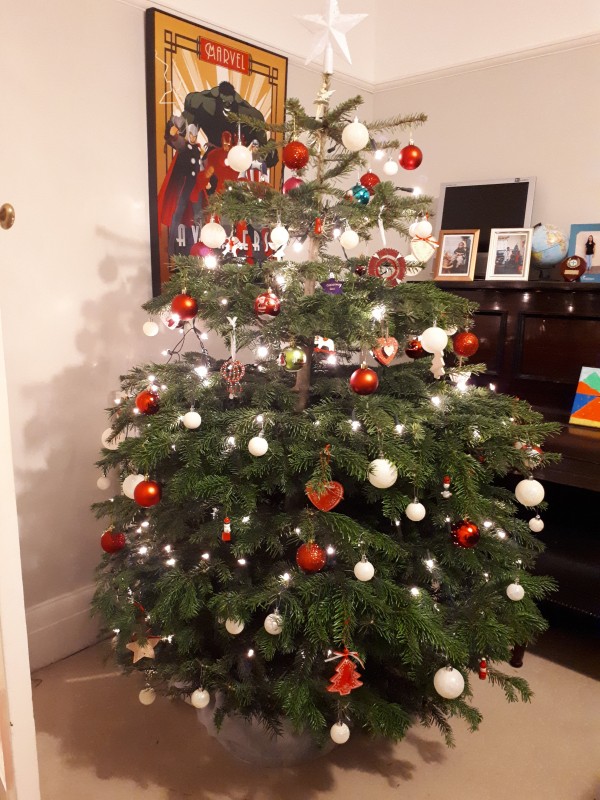About 8 years ago I had what is described in mental health as a crisis. I remember the day well: a few weeks before I started feeling unwell with varying symptoms from headaches, tiredness, dizziness, to slurred speech. After several visits to the Doctor I tentatively asked if any of those symptoms could be due to underlying mental illness. But that question wasn’t an out of the blue question because for about close to a year I had been feeling that something wasn’t quite right. In the latter months I experienced this dread and an inexplicable fear of dying. Okay, the thoughts in my head were telling me I was going to die. Every time I left home I feared that today would be the day when it would happen.
The backdrop to this is that from since a young age I experienced ‘weird’ emotions and extreme mood swings, racing thoughts and moments of gloom. I learned to accept is as part of who I was and just got on with it. After giving birth to my daughter I was diagnosed with post-natal depression and from then on began to accept depression as part of my life. The depression came back about a year or so after my son was born. When that crisis day happened I had been back on antidepressants for a while, was receiving counselling, and feeling rather positive about things.
On the day of the crisis I went for my regular check-up with my GP who was happy with my progress, and I remember telling her I felt positive about things. I left the GP’s office and went across to the supermarket to pick up a few things, and then it happened: basket in hand, I walked around the store in a daze unable to focus on why I was there. All I could feel was everybody staring at me and it suddenly felt like the shop was full of people talking and looking at me. I felt the sudden urge to escape, and confused, I put the empty basket down and headed back to the Doctors. By the time I got to the receptionist I was a wreck (it was a 2 minute walk), and I tried to explain that I needed to speak with the Doctor I had just seen. Without an appointment that was not happening so I left but only made it just outside the door where I crumbled into a heap on the floor. I managed to ring a friend but couldn’t get the words out properly. Luckily, another receptionist saw me and came to help, and took me in to see the Doctor.
In that moment, I knew I needed help, that all the fight in me had gone. I remember the Doctor asking me what I wanted and I just said through the tears, “I need help”. The events that followed involved an awful experience at a Mental Health Crisis centre who couldn’t help as I did not have an appointment, despite being sent there by the doctor (I waited over an hour in that place), but luckily my friend had come to meet me and took me the hospital. I don’t remember much what happened then but it seemed like the longest night of my life. I was signed off work for about 5 months and I’m thankful for the support of my husband and my friend during that time.
Memories of those few months are a blur but I think I spent most days in bed, and unable to face the outside world. Eventually I would try going for short walks, but even that proved too much at times. I don’t know how I could have taken care of the children without hubby, or indeed, take care of myself. Some days were darker than others, with moments where I would collapse, unable to speak or move. Eventually, I was able to get back to work after an emotional re-entry to work interview.
My mental illness is something I have learned to accept but it has been a struggle – trying to pretend that everything is okay is hard work and about 2 years ago I decided I was tired of trying to keep it all in. The mood swings, the sleepless nights, the myriad of thoughts, the erratic behaviour, were becoming too much and I didn’t want to pretend anymore. My best friend/adopted sister is a Doctor in the US and on a visit to see me get ordained as a Methodist Minister, asked me point blank about my mental health. I couldn’t lie to her , she knew me too well, so we had a very emotional conversation. She got me to do a test for Bi-Polar and insisted I go back to my doctor and ask for them to investigate if that was a possibility (that was her suspicion based on what she knew about me).
Just over a year ago I finally received the diagnosis of Bi-Polar 2 disorder. My illness doesn’t manifest in mania, and to be honest, over the years, having learned to mask the illness, I don’t think many people would have suspected anything. But if there is one thing I have learned over the years it’s that no one can get through dark moments on their own. I hear people say things like, “Just get on with it”, or “You’ve got to keep it together” and I think no, I have been doing that for most of my life and I don’t want to be that person anymore. I joke that I am too much of a coward to take my own life (there have been times when I fantasised about dying), but the truth is, without the support of my husband and if my life situation was different, I’m not sure I would be writing this today.
Mental illness is a serious thing. It doesn’t make you weak for admitting you have a problem, neither is it a sign of failure. In fact, not speaking up about it is the biggest mistake one could make. Growing up, I watched my father exhibit varying forms of mental ill health (although that is a retrospective observation), wreaking havoc on our family, but there was no help for him apart from the bottle. This year marks 21 years since he took his own life, leaving a note which simply read, “I can’t take it anymore”. So in this week of mental health awareness, I urge you to not suffer alone. And if you know someone who suffers with mental illness, be there for them, not necessarily to offer any advice or solutions, but just to be that person they can lean on when they find themselves falling. Like that B.T advert used to say, “It’s good to talk”.
 It seems as if more and more churches are looking for ways to provide an intergenerational worship experience. Also, more families are looking for churches where they feel comfortable to worship as a family. Worshiping as an intergenerational community is not easy. It is challenging to plan a worship that is intellectually stimulating for the adults and spiritually meaningful for the kids. Often the trap that churches fall into is either dumbing down the message or inserting kid-friendly moments like children’s sermons. Unfortunately, this rarely satisfies anyone.
It seems as if more and more churches are looking for ways to provide an intergenerational worship experience. Also, more families are looking for churches where they feel comfortable to worship as a family. Worshiping as an intergenerational community is not easy. It is challenging to plan a worship that is intellectually stimulating for the adults and spiritually meaningful for the kids. Often the trap that churches fall into is either dumbing down the message or inserting kid-friendly moments like children’s sermons. Unfortunately, this rarely satisfies anyone. She stands on the edge of the shore, waves gently crashing, laps of water caressing her feet. Her toes sink into the damp sand, moveable, yet firm, and she ponders the ways of the waves. What brings them to shore, and how quickly they dissipate into nothing, wave meeting wave, after wave after wave.She considers how much like the waves of the sea her life seems to be at the moment: an endless onslaught of emotions, each one colliding with the next, until they merge to form an endless blanket of pain and sadness and grief, stretching her until she finds herself limp beneath their weight. Perhaps like the waves of the sea, there is a reason for all this, she ponders.What if, just like how the grinding of shells and other materials, cause the beautiful shimmering sand, brought to fruition by the waves, the events of life that currently leave her shattered will somehow forge a thing of beauty she has yet to imagine? What if the deep pain she feels in her bosom is the birthing of something so pure, it has yet to be experienced?She struggles to see the shimmers of pink in the sandy grains of her life and sees only the gnarled bundles of seaweed, intermingled with bouts of litter scattered across the shores of her present life. She yearns for the day when her deep pain will be no more: when memories of recent events will fade away into the night, becoming just the hint of a memory. Dare she hope? Dare she wait in eager expectations of that which is to come? What will her new normal look like? Can she look forward to days of sunshine sprinkled with wafts of cool breeze, blowing away her painful thoughts?She desperately wants to believe in happily ever after again. And so, she stands on the shores face held up to the sky and she breathes in the rays of sunshine, warm and soothing on her skin. She squints and takes in the radiant blue of the sky above, and as she feels the cool of the water gently caressing her feet, hope seems possible once again.
She stands on the edge of the shore, waves gently crashing, laps of water caressing her feet. Her toes sink into the damp sand, moveable, yet firm, and she ponders the ways of the waves. What brings them to shore, and how quickly they dissipate into nothing, wave meeting wave, after wave after wave.She considers how much like the waves of the sea her life seems to be at the moment: an endless onslaught of emotions, each one colliding with the next, until they merge to form an endless blanket of pain and sadness and grief, stretching her until she finds herself limp beneath their weight. Perhaps like the waves of the sea, there is a reason for all this, she ponders.What if, just like how the grinding of shells and other materials, cause the beautiful shimmering sand, brought to fruition by the waves, the events of life that currently leave her shattered will somehow forge a thing of beauty she has yet to imagine? What if the deep pain she feels in her bosom is the birthing of something so pure, it has yet to be experienced?She struggles to see the shimmers of pink in the sandy grains of her life and sees only the gnarled bundles of seaweed, intermingled with bouts of litter scattered across the shores of her present life. She yearns for the day when her deep pain will be no more: when memories of recent events will fade away into the night, becoming just the hint of a memory. Dare she hope? Dare she wait in eager expectations of that which is to come? What will her new normal look like? Can she look forward to days of sunshine sprinkled with wafts of cool breeze, blowing away her painful thoughts?She desperately wants to believe in happily ever after again. And so, she stands on the shores face held up to the sky and she breathes in the rays of sunshine, warm and soothing on her skin. She squints and takes in the radiant blue of the sky above, and as she feels the cool of the water gently caressing her feet, hope seems possible once again.